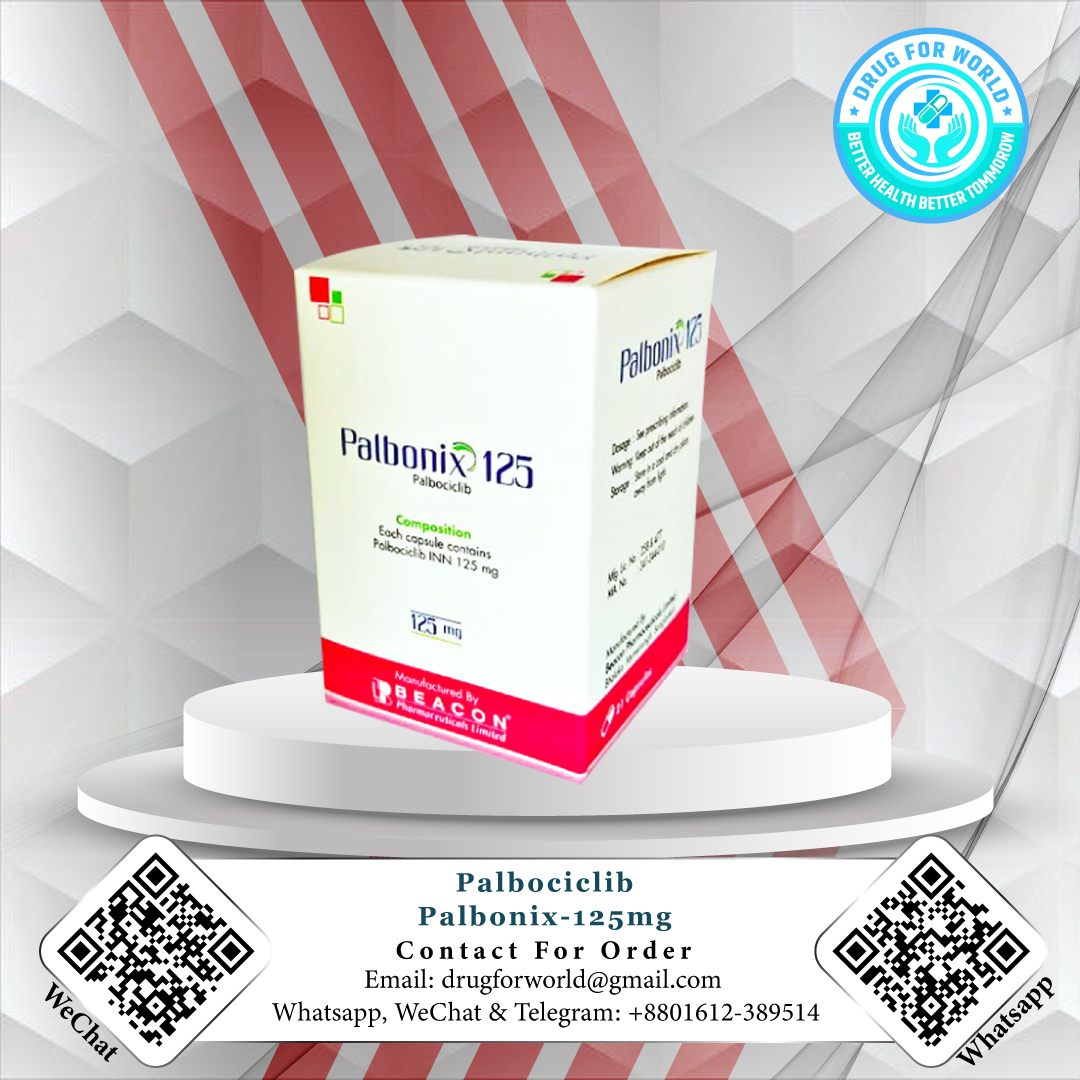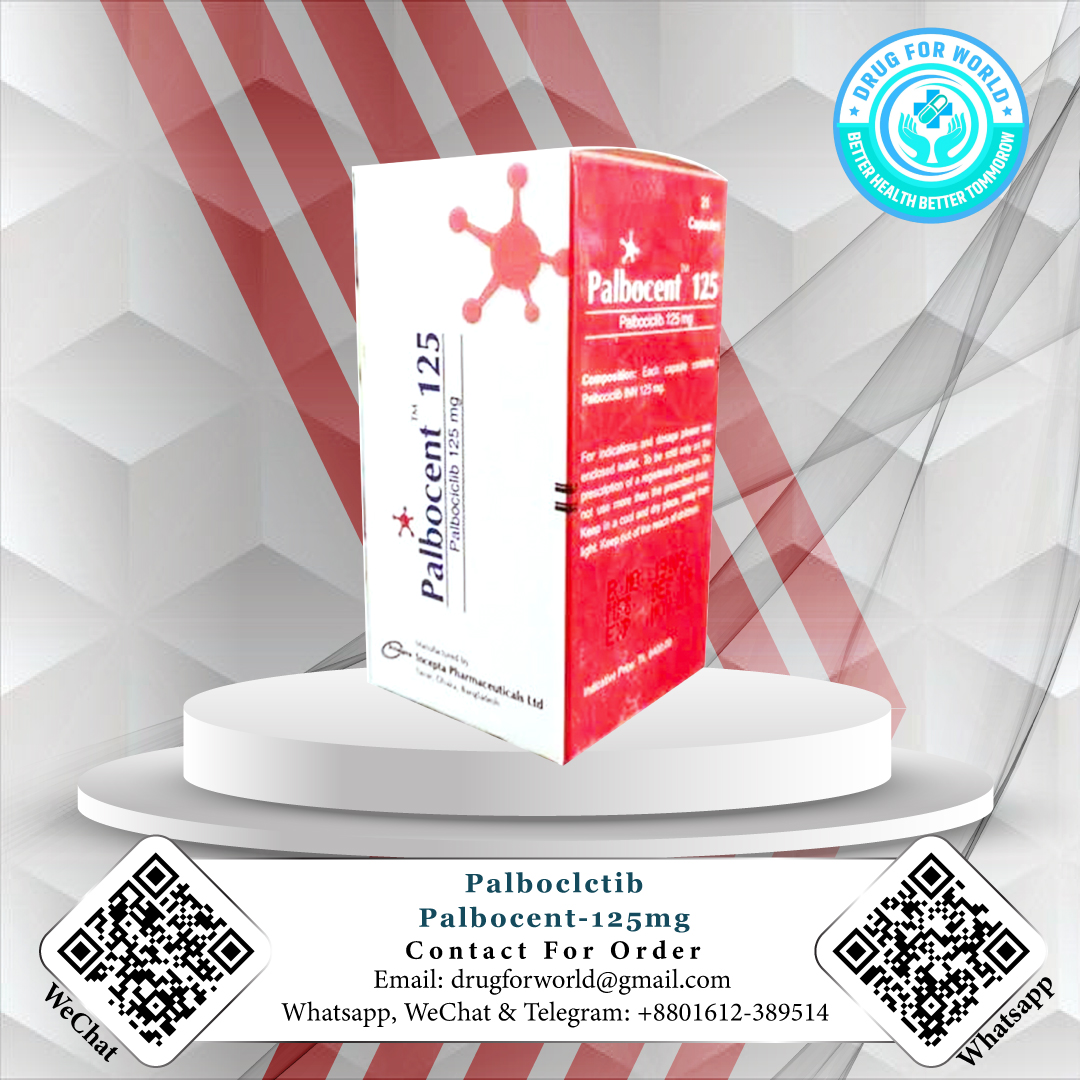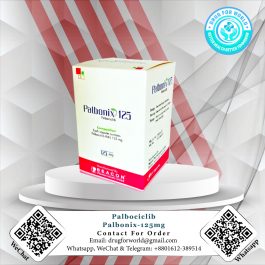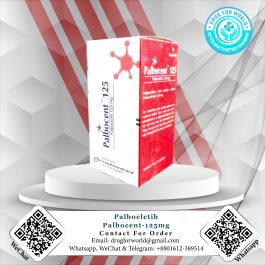Hernix 40mg (Neratinib)
Hernix 40 mg, containing the active ingredientNeratinib, is a groundbreaking oral medication specifically designed for patients withearly-stage Targeted therapy for her2-positive breast cancer. It reduces the risk of cancer recurrence after initial treatments such as surgery or chemotherapy. As a tyrosine kinase inhibitor (TKI), Hernix targets and blocks specific proteins involved in cancer cell growth, helping prevent the spread and recurrence of breast cancer.
Description
Hernix 40mg (Neratinib) is a widely prescribed medication, often recommended for managing conditions such as acid reflux, peptic ulcers, and gastroesophageal reflux disease (GERD). With its active ingredient, esomeprazole, Hernix works by reducing the production of stomach acid, offering significant relief for individuals suffering from related ailments.
we will delve deep into the pharmacological properties of Hernix 40mg, its indications, dosages, side effects, and more. Whether you are a patient looking for more information or a healthcare professional seeking clarity, this guide covers all aspects of Hernix 40mg.
Indications: When is Hernix 40mg (Neratinib) Prescribed?
Hernix 40mg (Neratinib) is primarily prescribed for the treatment of conditions associated with excess stomach acid. Below are the common indications for its use:
-
Gastroesophageal Reflux Disease(GERD)
Acid from the stomach often refluxes into the esophagus in people with GERD, a persistent digestive disorder. This may result in symptoms like regurgitation, chest pain, and heartburn. Hernix 40mg helps by reducing the amount of acid produced in the stomach, providing relief from the uncomfortable symptoms associated with GERD.
-
Peptic Ulcers
Sores that appear on the lining of the stomach, small intestine, or esophagus are known as peptic ulcers. They may be brought on by a Helicobacter pylori infection or chronic NSAID (nonsteroidal anti-inflammatory drug) use. Hernix 40mg can help treat peptic ulcers by reducing acid production, allowing the ulcer to heal more effectively.
-
Zollinger-Ellison Syndrome
This is a rare condition in which tumors in the pancreas or duodenum cause the stomach to produce excessive amounts of acid. Hernix 40mg is prescribed to control the overproduction of stomach acid in such patients.
-
Helicobacter pylori Eradication
When combined with antibiotics, Hernix 40mg is used as part of a treatment regimen aimed at eradicating H. Peptic ulcers can be brought on by the bacteria Helicobacter pylori.
-
Prevention of Ulcers Due to NSAIDs
For patients who require long-term NSAID therapy, Hernix 40mg may be prescribed to prevent the development of ulcers, as NSAIDs can irritate the stomach lining and lead to ulcers.
Pharmacology: How Does Hernix Work?
esomeprazole is a proton pump inhibitor (PPI) found in Hernix 40mg. The main mechanism of action of esomeprazole is its ability to block the proton pumps in the stomach lining, which are responsible for secreting hydrochloric acid. By inhibiting these proton pumps, Hernix effectively reduces the overall acid production in the stomach.
This reduction in stomach acid serves several purposes:
– It alleviates symptoms such as heartburn and indigestion.
– It helps ulcers heal by creating a less acidic environment, allowing the stomach lining to regenerate.
– It prevents further acid-related damage to the esophagus, stomach, or duodenum.
Hernix 40mg typically starts to work within one hour of ingestion, and its effects can last for up to 24 hours, providing sustained relief from symptoms.
Dosage and Administration: How Should Hernix 40mg Be Taken?
The typical dosage for Hernix 40mg can vary based on the condition being treated. It’s crucial to adhere to your healthcare provider’s directions exactly, though.
General Dosage Recommendations:
– For GERD: The usual dosage is 40mg once daily, typically taken in the morning. Treatment is usually recommended for 4-8 weeks, depending on the severity of the symptoms.
– For Peptic Ulcers: The recommended dosage is 40mg once daily for 4-8 weeks, especially if it’s related to H. pylori infection.
– For Zollinger-Ellison Syndrome: The dosage may be higher, with some patients needing 40mg twice daily or more, depending on their condition and response to the medication.
– For NSAID-induced Ulcers: A 40mg daily dose may be recommended to prevent ulcers in patients who need long-term NSAID therapy.
Hernix 40mg is usually taken orally, either before or after meals. Instead of crushing, chewing, or breaking the tablets, they should be consumed whole. If you have difficulty swallowing the tablet, it can be opened and mixed with water, but the mixture must be consumed immediately.
Missed Dose:
Unless your next planned dose is almost here, take the missed dose as soon as you remember. In that case, skip the missed dose—never take two doses at once.
Drug Interactions: What Drugs Should You Avoid?
Hernix 40mg, like many medications, can interact with other drugs, potentially altering their effectiveness or increasing the risk of side effects. Some notable interactions include:
-
Antifungals and Antibacterials:
Medications such as ketoconazole, itraconazole, and rifampin may interact with Hernix 40mg, as they rely on stomach acid for absorption. By reducing stomach acid, Hernix can reduce the effectiveness of these medications.
-
Antiplatelet Agents:
Drugs like clopidogrel (Plavix) may have reduced efficacy when taken with PPIs like esomeprazole. This is because PPIs may inhibit the activation of clopidogrel, reducing its ability to prevent blood clots.
-
Antacids:
While antacids are often used to neutralize stomach acid, taking them with Hernix 40mg is not typically recommended as it can counteract the acid-suppressing effects of the medication.
-
Other Proton Pump Inhibitors:
Taking Hernix 40mg (Neratinib) alongside other PPIs (like omeprazole) should be avoided, as this could excessively reduce stomach acid and increase the risk of adverse effects.
-
Warfarin:
There have been instances where PPIs like Hernix 40mg interact with warfarin, increasing the risk of bleeding. Regular monitoring of blood clotting times (INR) is recommended if both drugs are prescribed together.
Side Effects: What Are the Possible Adverse Effects?
Although Hernix 40mg (Neratinib)is generally well tolerated, like any medication, it can cause side effects. Most of these are mild and go away with continued use, but in some cases, they may require medical attention.
Common Side Effects:
– Headache
– Diarrhea
– Nausea or vomiting
– Abdominal pain or bloating
– Flatulence (gas)
Serious Side Effects:
Severe allergic reactions (rash, itching, swelling)
Low magnesium levels, which can lead to symptoms such as muscle spasms, irregular heartbeat, and seizures.
Bone fractures, particularly with long-term use.
Clostridium difficile infection in the colon, which can cause severe diarrhea.
liver issues, include jaundice (eye or skin yellowing).
Get medical help right away if you encounter any serious side effects or symptoms that worry you.
Pregnancy and Lactation: Is Hernix Safe for Pregnant or Breastfeeding Women?
Pregnancy:
Hernix 40mg is classified as Category C during pregnancy, meaning that while studies on animals have shown some risks, there are insufficient human studies to determine its safety.It should therefore only be taken if the potential benefits of doing so during pregnancy exceed the risks. Always consult a healthcare provider before using Hernix if you are pregnant or planning to become pregnant.
Lactation:
Esomeprazole, the active ingredient in Hernix, does pass into breast milk in small amounts. While it is not known to pose significant risks to a breastfeeding infant, it is essential to consult your healthcare provider before using this medication while nursing.
Precautions and Warnings:
-
Liver Impairment:
Patients with liver disease should use Hernix with caution, as the medication is metabolized by the liver. Dose adjustments may be necessary, especially for those with severe liver impairment.
-
Bone Health:
Long-term use of PPIs like Hernix 40mg has been associated with an increased risk of bone fractures, especially in patients who are older or have other risk factors for osteoporosis. It’s important to monitor bone health during prolonged treatment.
-
Low Magnesium Levels:
Prolonged use of Hernix can lead to low magnesium levels in the body, which can cause muscle cramps, irregular heart rhythms, and seizures. Magnesium levels should be monitored in patients taking Hernix for extended periods.
Use in Special Populations:
-
Pediatric Use:
Hernix 40mg is not typically prescribed to children under the age of 12, except in cases where the potential benefits outweigh the risks. A pediatrician should always be consulted before administering this medication to a kid.
-
Elderly:
Older adults may be more susceptible to the side effects of Hernix, including the risk of bone fractures and low magnesium levels. Dose adjustments and regular monitoring are often required for elderly patients.
Therapeutic Class:
Hernix 40mg belongs to the proton pump inhibitor (PPI) class of drugs. PPIs are used to reduce stomach acid and treat a variety of acid-related conditions.
Storage Conditions:
It is best to keep Hernix 40mg at room temperature and away from moisture.







Reviews
There are no reviews yet.